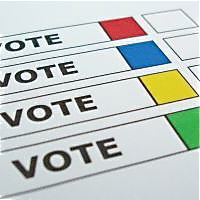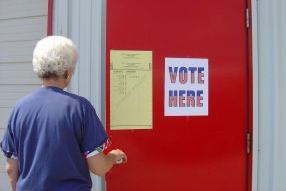 The November 4 presidential election is fast approaching.
The November 4 presidential election is fast approaching.
After a soap opera-worthy campaign season of lipstick-slinging candidates and nose-diving stocks, turnout is expected to be high this year.
But what is the political impact if we overlook a group of Americans that’s equal to the population of Massachusetts?
If you’re an American living overseas, whether an expatriate, soldier or student, here’s what you need to know about voting abroad …
The U.S. State Department estimates that about 6.6 million Americans reside overseas, among them students, corporate executives, U.S. government employees, and approximately half a million members of the U.S. Armed Forces.
If you’re living overseas, voting can be tricky, time-consuming and expensive, which helps explain why only one third of the 1 million or so absentee ballots requested by Americans living overseas were cast and counted in 2006.
A recent National Public Radio report described how each state has different rules regarding absentee ballots, particularly around deadlines and verification. Under normal circumstances, most states and territories begin sending ballots to overseas citizens 30-45 days before an election—creating an all-too-tight turnaround time.
 Once you get the ballot, some states, like Alabama, require two witnesses or a notary to sign it, and then it can only be sent back via U.S. Postal Service. Other states let voters fax or email ballots without any verification, or to send them via FedEx or UPS if the absentee ballot deadline is looming.
Once you get the ballot, some states, like Alabama, require two witnesses or a notary to sign it, and then it can only be sent back via U.S. Postal Service. Other states let voters fax or email ballots without any verification, or to send them via FedEx or UPS if the absentee ballot deadline is looming.
Voting is particularly tough for military personnel, who move around often. And if you’re stationed in Iraq or Afghanistan, the military postal service recommends that you send in your ballot by September 30—but only 24 states actually have absentee ballots available before that day. Of those 24, so far only California has actually sent them to overseas voters.
With these difficulties in mind, various organizations have made efforts to ease the process.
The Defense Department’s Federal Voting Assistance Program has worked out an agreement with the U.S. Postal Service to expedite ballot delivery to and from overseas voters.
The non-profit, non-partisan Overseas Vote Foundation allows overseas and military voters to customize their federal emergency write-in ballot to a particular state via its Web site.
There is even a move afoot in Congress to include Americans abroad in the 2010 U.S. Census, along with plans to create a comprehensive method of keeping track of them for voting purposes.
If you live overseas and haven’t yet made arrangements to vote, now is the time to act because the election is less than eight weeks away. First find out where you are registered to vote. The State Department considers the state where you last resided immediately prior to departure from the U.S. to be your “legal state of residence” for voting purposes.
To register to vote and/or apply for an absentee ballot, you can use the Federal Post Card Application (FPCA) at https://www.fvap.gov/resources/media/fpca.pdf. This form can also be obtained from any U.S. embassy or consulate, or from many American civic groups.
The emergency ballot, the Federal Write-in Absentee Ballot (FWAB), is also available at these places, or online at https://www.fvap.gov/resources/media/fwab.pdf.
The official U.S. Government Web site for the Federal Voting Assistance Program has a wealth of information about absentee voting, including state-specific instructions for completing the FPCA form and links to state and local officials.
Voting Assistance Officers at U.S. Embassies and Consulates overseas are also available to answer questions about absentee voting.
For general information, visit the State Department 2008 Absentee Voting Information for Americans Abroad at https://travel.state.gov/law/info/.
By Karen Elowitt for PeterGreenberg.com.
Find out Peter’s take on the presidential candidates and travel policy in his blog post: Of Travel and Politics.
Get more of our latest Travel News Analysis.












